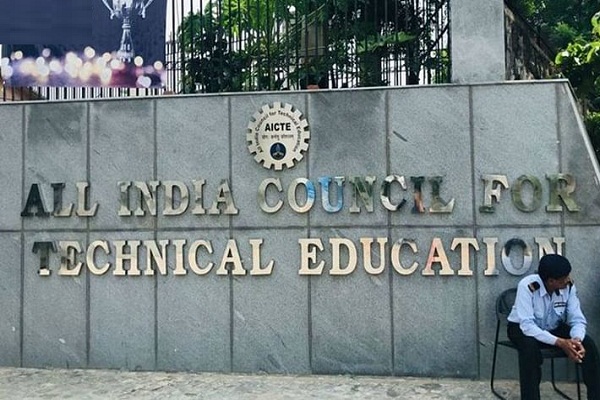From navigating digital landscapes to fostering engagement, this in-depth exploration reveals how Learning Management Systems and innovative e-tools are revolutionising contemporary education. Discover the transformative role of digital technologies, AI’s exciting potentials, and the pivotal trends to watch as we prepare future generations for the challenges and opportunities of the digital age.
The Learning Management System (LMS) Market is expected to experience significant growth during the forecast period due to several key factors. The demand for smart and interactive learning platforms is coupled with a growing preference for training and learning sessions. Educational institutions are adopting tools to support and enhance the learning process and teaching effectiveness.
The growth of the learning management systems market is further driven by the widespread use of smartphones and the availability of fast internet connectivity with 48% of students using desktop computers, 42% using smartphones, 33% using interactive whiteboards, and 20% using tablet devices, according to the latest Global Education Census Report (New Global Survey, 2019). In addition, trends such as mobile learning are signaling a shift towards more technologically advanced teaching paradigms.
The incorporation of Artificial Intelligence (AI) presents significant opportunities for companies in the learning management systems industry. It enables the automation of human-involved operations, leading to expanded offerings and improved efficiency for learning management systems companies.
The Significance of LMS in the Current Educational Landscape
NEP 2020 emphasises the importance of a robust digital infrastructure. Considering the extent, diversity, and intricacy of technology implementation in India, it’s vital to invest in creating interoperable, evolving digital infrastructure within the educational sphere. This will ensure that despite rapid technology advancements, school systems remain relevant and updated. The policy also promotes the utilisation of digital repositories and online examinations. As the world evolves at a fast pace, adaptation becomes the necessary next step, consequently amplifying the relevance of LMS.
Modern technology is harnessed in an integrated school platform to seamlessly amalgamate and facilitate all managerial and administrative tasks. With the aid of an integrated school platform, schools can regulate every facet of their operations with a single click. It simplifies the process for all stakeholders to monitor all activities within the school. A significant benefit of an integrated school platform is that it brings all stakeholders together under one umbrella. They are kept informed about data relevant to them and stay updated with the platform’s assistance.
But what’s driving this digital revolution in education? The answer lies in two critical components: LMS and a myriad of digital tools. But how important are they?
Why Opt for a Learning Management System?
LMS is beneficial for all educators and school administrators eager to digitalise their curriculum. Here are a few additional advantages of utilising an LMS for e-learning:
Elevated Engagement Levels: An LMS allows instructors to design course content in a variety of formats. The fundamental curriculum, enriched with visual and audio content, makes the course more appealing to students. Using an LMS, you can also compile materials from diverse sources to construct e-courses in multiple formats.
As traditional classroom lectures can become monotonous, students exposed to a range of learning materials show increased engagement in class and enhanced performance.
Flexibility: An LMS grants access to e-learning content anytime and anywhere. You need not worry about generating distinct content for virtual teaching. Regardless of whether your students choose in-person or distance learning, they are given access to identical content.
The flexibility offered by the LMS permits the student to learn at their own pace. Whether it involves rewatching a video lecture or accessing new content, a student can formulate their personal learning plan.
Diverse Assessment Alternatives: You can leverage an LMS to track student performance and develop a comprehensive assessment system. Beyond tests and quizzes, the system also lets you track student progress based on the completion of course material. Well-structured student data facilitates a straightforward approach to monitoring students’ academic performance.
The assessment system is bidirectional when using an LMS. Students can also evaluate the course and provide feedback on the e-learning content. For instance, if the majority of the students vote for a different learning approach for a chapter, you can modify the course content accordingly.
Integrated and Scalable Solutions: The purpose of an LMS in an educational institution is to enhance efficiency and time management. E-learning curriculum management is a multistep process that requires a range of features to function effectively. A robust LMS integrates features like calendars, student forums, and communication channels to build a comprehensive solution for e-learning.
Furthermore, promoting your courses on social media platforms is possible through an LMS. Since all the lectures, notes, and other learning materials are available on a single platform, adding students to the course is not challenging.
LMS Trends to Watch-Out for:
1. Customisable Configurations: First and foremost, top-tier LMS platforms provide options for customisation. Tailoring your LMS ensures that you maximise your training experience. Some LMS solutions allow you to create groups and arrange learning content based on department, job role, or more specific training requirements.
Here are some areas you can customise to align with your exact needs:
• Onboarding
• Product and systems training
• Sales enablement
• Coaching and leadership training
• Upskilling
• Industry and company language
Having an LMS that can be adapted to your organisation’s needs guarantees that your employees always receive pertinent training content.
2. Microlearning: According to a Microsoft study, the average attention span now stands at eight seconds – even less than a goldfish, which registers at nine seconds. Microlearning delivers information in small, easily absorbable chunks and is another rising trend in the future of learning management systems.
Learning management statistics reveal that microlearning is the ideal solution to today’s shrinking attention spans, facilitating improved engagement, absorption, and retention of information. Since the lessons are shorter, microlearning is perfect for individuals on the move who don’t have an hour or more to commit to a single training module. It’s significantly easier to allocate 3-5 minutes at a time to watch a video, play a game, collaborate with team members, or acquire a new skill.
3. Gamification: Gamification incorporates gaming elements such as leaderboards, point systems, and well-defined goals into everyday learning and training scenarios.
By making training more engaging and entertaining, your company and employees will reap substantial benefits, such as:
• Improved retention rates
• Increased employee confidence
• Enhanced team engagement and collaboration
• Heightened enthusiasm about new learning opportunities
Gamification motivates employees through friendly competition, even against themselves, and encourages them to take charge of their learning and upskilling.
4. Real-Time Analytics: Forecasts about the future of education need to be grounded in practical analytics. Data gathering and learning metrics assist you in evaluating the efficacy of your company’s training programs. Here are some aspects you can monitor with the right LMS:
• Employee activity, progress, and evaluation
• Completion rates and learning scores
• Engagement and overall satisfaction
Each LMS will have distinct reporting capabilities ahead, and determine what’s crucial for your company’s objectives before selecting your learning management system.
The Role of Virtual Reality in LMS
LMS for higher education has been integrating immersive technologies like VR (Virtual Reality) and AR (Augmented Reality) to meet the diverse needs of learners and keep them captivated in the learning process. Virtual Reality involves the use of a head-mounted display, which entirely alters an individual’s vision, while Augmented Reality projects images onto a tablet or a computer screen.
Both VR and AR facilitate in-depth learning. With the incorporation of these advanced learning tools into an LMS system, students can build knowledge and remember course content by utilising their sensory skills. They play a crucial role in equipping educators to prepare the next generation to face the challenges of a 21st-century world and are fundamental to the evolution of learning in the digital age.
For instance, colleges and universities have established research facilities to study VR and AR topics (Schaffhauser, 2019). Academic conferences have been conducted using virtual reality, like at Lethbridge College in Alberta and Centennial College in Toronto for the past two years. It’s evident that immersive technologies in the classroom have a substantial impact on course design and delivery. These learning platforms assist students in interacting with the world around them and contribute to the development of students’ critical thinking and problem-solving abilities.
Conclusion
The integration of LMS and digital tools in the educational landscape has brought about significant transformations in teaching and learning experiences. LMS platforms have become crucial for educators, administrators, and students alike, revolutionising the way education is delivered.
The utilisation of LMS and digital tools in education has become indispensable, offering elevated engagement levels, flexibility, diverse assessment options, integrated solutions, and opportunities for immersive learning experiences. As technology continues to advance, embracing LMS platforms will be crucial in preparing the next generation for the challenges of the digital age.


























